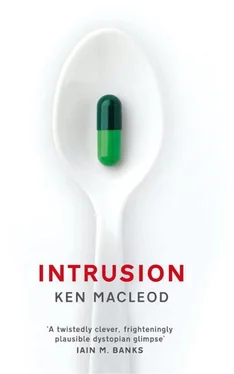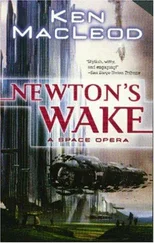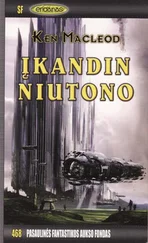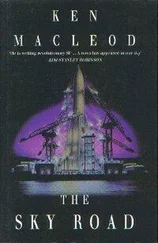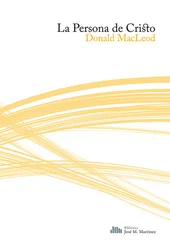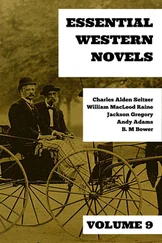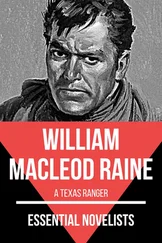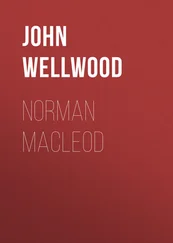‘Personal? Unfair? I hope so! And as for gay people…’ Nigel’s face clouded for a moment, then cleared. ‘Do you know any?’
‘There’s Ms Merton, the geography teacher, she’s a lezzie. And—’
‘Personally, I mean. Of your own age, or thereabouts.’
Hugh shook his head. ‘That’s not the point.’
‘Ah, but it is,’ said Nigel. ‘You see, you do know some.’ He leaned back in his chair, folded his arms, and looked quizzically at Hugh. ‘Statistically, it’s close to a certainty. Have you ever wondered why you don’t know who they are?’
Hugh scratched the back of his head. ‘Not exactly. I never thought of it that way.’
‘Well, you go off and think about it. That would be something… worth thinking about. You might even say it would be Christian.’
Hugh didn’t know where to look.
Hugh and Nigel slung the baggage in the back of the Nissan and they all piled in, after an awkward round of mutual assured deferring for the front passenger seat that ended with Mairi and Hope sitting in the back, Hugh between them, and Nick up front with Nigel. Nigel had brought a booster seat for Nick, so he had a view as well as being safe. Hugh couldn’t see nearly as much from where he sat, an arrangement that suited both him and Nick. Nick was fascinated by the peculiar local variant of New Trees, whereas Hugh was somewhat depressed. What would become part of Nick’s childhood memories was a wrenching dislocation of Hugh’s. He missed the moors, not so much for what they were as for the views they had afforded, of the hills to the west and south.
On what had been open moorland of bog and peat, that thin post-glacial deposit over the pre-Cambrian gneiss, a covering tattered with innumerable lochs – some little more than puddles, others wide and deep enough to sustain their own lake monster or crashed aeroplane – and outcrops, there now grew dense plantations of modified pine. The trees grew like weeds until they reached a height of ten metres, whereupon an enzyme was activated to weaken the trunk about half a metre above the ground. Any force greater than a puff of wind on that fracture line and they’d topple, silently felled, leaving a neat stump. If the fallen tree wasn’t harvested within about a week, further phased activation of enzymes changed its colour to a muddy yellow and started a rapid disintegration into a crumbly woodchip, which could itself be harvested for its fibres or left to consolidate, with unnatural rapidity like the unrealistic processes fancied by Flood Geology, into peat. The trees’ propagation was limited by sensitivities to sand in the soil and salt in the air. That to sand kept them off reclaimed land and off the fertile machair predominant on the east coast; that to salt stunted their growth in the west. These intrinsic safeguards were themselves fine-tuned by brute-force genetic overrides that kept the trees out of sites of special scientific interest and out of the island’s scenic areas: in the west, on the Ness peninsula and around Stornoway.
But the trees had the formerly bald central patch of the island to themselves, and to the communities that had likewise sprung up out of nowhere to process them. A network of new roads, noded with villages, spread through the synthetic forest. Every so often a log-laden truck would emerge from one of these side roads to trundle along toward Stornoway. Less often, other trucks of about the same size rumbled by with long cylindrical loads made up of spindled reels of cable, or with windmill blades as big as the wing of a small airliner, or with girders from their towers. Hugh recalled how when he’d been growing up he’d seen many trucks with the same loads, going the other way, from Stornoway to the moors and hills, and to assemble rather than dismantle. Even on the main road Nigel would, from habit rather than strict necessity, give each truck a wide berth as it passed, along with a wave to the driver.
He did this, Hugh noticed, even when the truck had no human driver. Perhaps his father was in his heart as much a mechanist as he was himself.
An hour after they’d left Stornoway, the car went around a bend and the village came into view, on the other side of a tongue of the sea-loch. There on the hillside opposite stood the house, the former manse, grey-walled and tile-roofed, sprawling, no trees New or old near it but a couple of tall pines in its sloping glebe and a cluster of smaller trees nearby. Amid the scores of houses and other buildings clustered around the shore and up the other hillsides it looked isolated, set apart, as if it were still a manse.
The car swung around another bend, revealing the narrow, dark glen, then across a bridge and back towards the village, past the craft shops, B&Bs and small restaurants and the two remaining churches. Nigel asked Nick, as if for a great favour, to hop out and open the gate, then close it again behind them. After Nick had proudly climbed back in, the palms of his hands reddened with rust, Nigel drove up the wee brae on the crunching gravel of the drive, to park between the peat stack and the shed.
‘Well,’ he said, ‘here we are.’
‘Home,’ said Hugh.
Hope gave him a look as they got out.
17. There Are Many Rooms in My Father’s House
Nick had been right: the house did smell, every room different. As they trooped through the back door into the short hallway, and then on through the house to drop off the baggage, freshen up and reconvene for dinner, Hope paused for a moment on the threshold of each room and passage to inhale its distinctive odour, familiar from her past visits, redolent of the place. The big difference from her own flat and from most of the others she knew was the number of rooms, the sheer volume of available space.
The hallway had the curious feature of a frosted-glass window in the ceiling, a relay for the skylight in the room immediately above. Its smell was of coats, anoraks, overalls and waxed jackets, all of which had many times been hung there wet and left to dry. The scullery on to which it opened smelled of laundry detergent and washing-up liquid. The adjacent kitchen-living-room, in which armchairs, other chairs, a dresser and a folding table huddled around an ancient stove, smelled at this moment of roast lamb, and generally of baking and boiling, of peat smoke and of peat ash. Through that room and out in the house’s main hall, the smells of old wood and recent floor polish took over. At the end of that corridor, the downstairs bedroom that had been assigned as before to Nick – its door faced that of Nigel and Mairi’s, he’d always slept soundly in it, and it was only a few steps and no stairs from the bathroom – had a warmer and more inviting smell of wool blankets and duvet fluff.
Hope left Nick there to bounce on the bed, open and shut the wardrobe door, climb into the window’s deep internal sill, rediscover the stacks of two generations’ worth of children’s books and toys, and generally settle in. She went back down the corridor and up the narrow staircase by the kitchen door to the attic, a big, dimly lit, cluttered space off which three doors opened: to a bedroom at each end, and to the room at the side that Nigel and Mairi used as an office and workroom, and which the house’s previous occupant, the minister, had used as a study. At the moment its door stood open, letting in daylight from the same big window that indirectly illuminated the hallway downstairs. The daylight was partly blocked by Hugh, standing in the doorway looking into the room.
Hope dropped her bags in the first bedroom beside Hugh’s and padded to the study door.
‘What are you looking at?’ she asked.
Hugh turned and smiled. ‘Something that isn’t there.’
Hope looked past his shoulder.
Читать дальше
